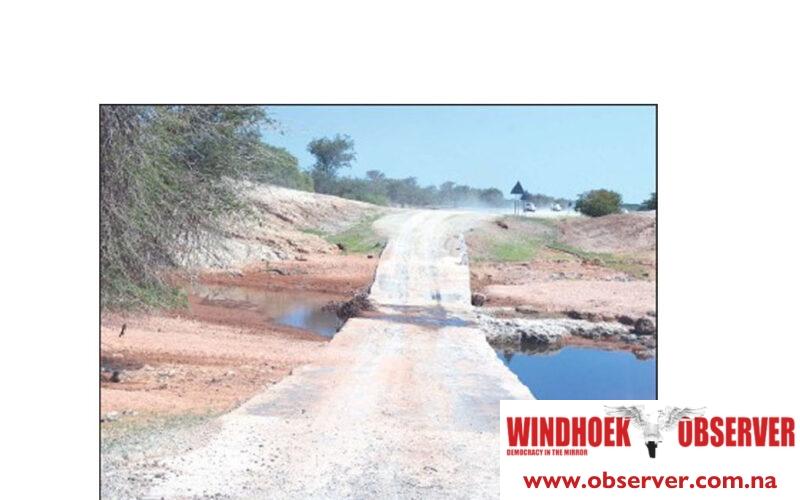Hertta-Maria Amutenja
Kunene Region is grappling with a multitude of challenges hindering the development of its road infrastructure.
This is according to a recent report by the Parliamentary Standing Committee on Transport, Infrastructure, and Housing after an oversight visit to the road infrastructure of the region.
The report sheds light on the complex issues impeding progress in this crucial sector.
One of the primary challenges highlighted by the regional leadership is the uneven distribution of the road infrastructure network. The vastness and sparse population of the region have led to a concentration of roads in the eastern and south-eastern.
“The leadership presented the status of the regional roads infrastructure. The distribution of the road infrastructure network is largely influenced by the vastness and the sparsely distributed inhabitants of the region. As such, the road infrastructure network is more pronounced in the eastern and south-eastern part of the region,” reads the report.
While some recent developments have taken place, including the improvement of key roads to bitumen standards and maintenance efforts, several obstacles persist.
In addition, the challenges identified by the region include the frequent destruction of roads and bridges by rainstorms, a limited budget, mountainous terrain making access difficult during the rainy season, and resistance from communities living in areas slated for road projects due to cultural beliefs.
The report further states that a public meeting in Opuwo Town echoed the sentiments of the regional leadership, with community members expressing dissatisfaction with the quality and durability of roads in the town.
The mountainous terrain in Kunene was emphasised as a unique factor exacerbating road accessibility issues during the rainy season. The community also raised concerns about the impact of poor road conditions on vehicle longevity, with cars not lasting more than two years in the region.
“During the meeting, the community members also highlighted the fact that buying a new car for use in the region is a waste as it does not even last for more than two years. Furthermore, the community expressed the issue of local motorists who receive more fines for cars that are not roadworthy than other towns in Namibia as a result of bad road conditions that damage their cars,” the report stated.
Further discussions with the Town Council of Opuwo revealed ongoing projects to upgrade roads to bitumen standards, but the challenges persist, especially during adverse weather conditions. The expansion of the town necessitates continuous efforts in formalising informal settlements and improving road infrastructure.
The Committee’s meeting with the Opuwo Rural Constituency community shed light on the limited economic activities due to poorly developed road networks. The constituency, one of the largest in the region, emphasised the need for comprehensive road network infrastructure to unlock its economic potential, including agriculture, mining and small-scale businesses.
“Currently, there are very limited economic activities happening regularly in the constituency because most economic potentials are not yet fully explored due to poor or non-existence of road networks,” reads the report.
Moreover, the report stated that communities in Otjiu, Okapembambu, Oute, Otjivize, Omwangete, and Muzenga also voiced their displeasure with the Roads Authority’s construction of bridges that easily wash away during rain seasons, cutting off essential services.
These communities urged construction companies to consider local input for more effective and sustainable infrastructure.
In light of these challenges, the Standing Committee on Transport, Infrastructure, and Housing has put forth recommendations.
These include prioritizing urban and rural road infrastructure development, advocating of increased financial resources for rural roads and ensuring climate-resilient road construction.




